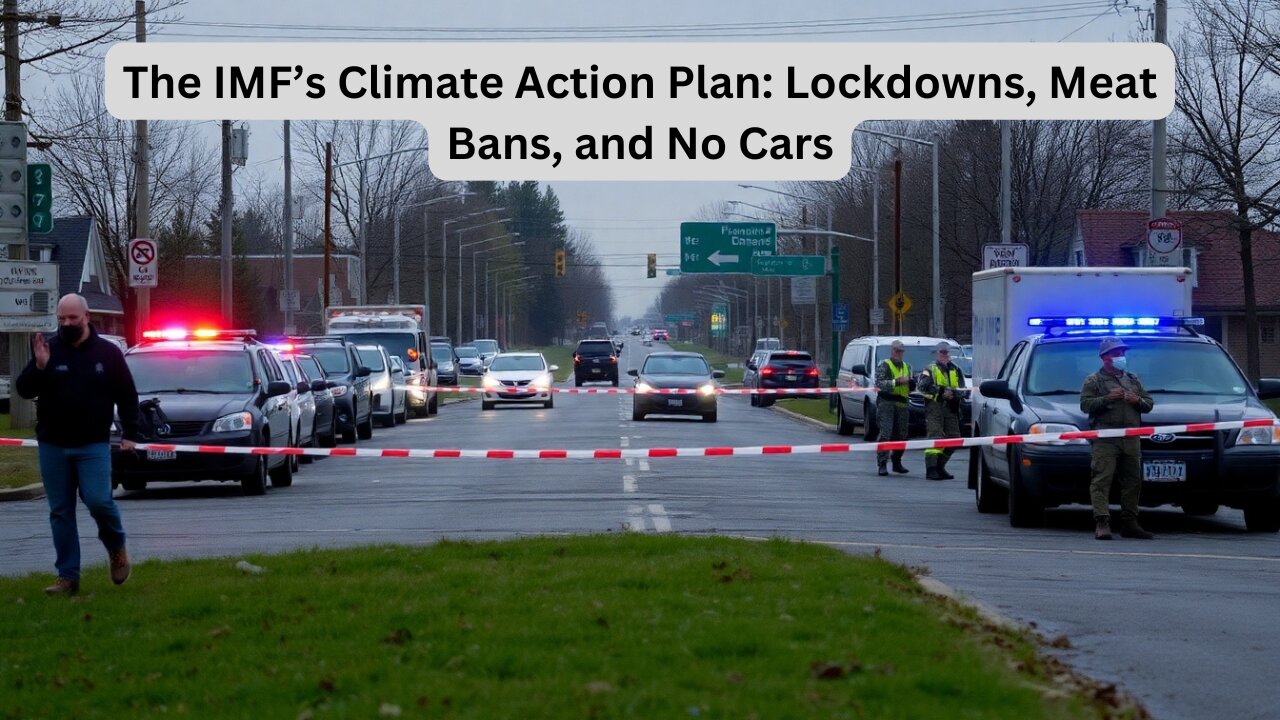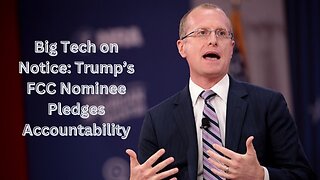Premium Only Content

The WEF’s Radical Plan: Could ‘Climate Lockdowns’ Be the Future?
The International Monetary Fund (IMF) and other global institutions have proposed drastic measures to address climate change, suggesting actions that could significantly disrupt daily life and reshape economies. These measures, which some critics argue resemble an extension of COVID-19-style restrictions, include limiting personal vehicle use, banning red meat consumption, and implementing stringent energy-saving policies. Fossil fuel extraction would also be halted under this framework.
Mariana Mazzucato, an advisor to the World Economic Forum (WEF), described these proposed "climate lockdowns" in 2020 as necessary to stabilize planetary temperatures. She emphasized the need for systemic economic overhauls and reimagining capitalism, framing the climate crisis as intertwined with health and economic challenges.
During the COVID-19 pandemic, similar rhetoric from organizations like the IMF and WEF raised concerns among the public that temporary restrictions might become permanent, forming part of a "new normal." Critics argue that while some pandemic-era policies remain in flux, a broader agenda aimed at imposing global "climate controls" appears to be emerging.
The IMF has recently issued calls for aggressive climate action, which opponents describe as a bid to consolidate control over global wealth and governance. Skeptics challenge the scientific basis for such measures, pointing to debates over the link between carbon emissions and climate change. They suggest the underlying goal may be wealth redistribution and centralization of power, particularly targeting Western nations while exempting others, thereby undermining Western civilization in favor of a new global order.
-
 1:33
1:33
Conspiracy Chronicle
26 days agoTrump Declares War on Big Tech Censorship with Bold FCC Pick
961 -
 LIVE
LIVE
PudgeTV
7 hours ago🔴 Gaming on Rumble - Marvel Rivals | Iron Man's Armory: Equipping Groot and Jeff for Battle
393 watching -
 LIVE
LIVE
The Charlie Kirk Show
1 hour ago2024 In Review + The Truth About H-1Bs | Girdusky, Carl | 12.30.24
8,117 watching -
 6:51
6:51
The Rubin Report
2 hours agoDave Rubin Reacts to Trump’s Greatest Moments
17.5K4 -
 DVR
DVR
Bannons War Room
1 year agoWarRoom Live
102M -
 0:57
0:57
Steven Crowder
3 hours agoCROWDER CLASSICS: AOC & the Lion’s Den (Bible Story Parody)
75K7 -
 50:00
50:00
Graham Allen
5 hours agoGoodbye 2024…. HELLO 2025!!
66.1K16 -
 2:01:16
2:01:16
LFA TV
16 hours agoH1B FIASCO! | LIVE FROM AMERICA 12.30.24 11am EST
31K17 -
 2:05:37
2:05:37
Matt Kohrs
16 hours agoStocks Puke, Breaking News & BIG Updates || The MK Show
57.3K3 -
 51:57
51:57
Dad Dojo Podcast
3 hours ago $2.09 earnedEP15: The Bronny James Debate 2
24.5K